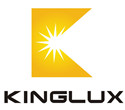| TEL:
+86 510 82123195
|
| Mobile: |
+86 18168862789
|
| FAX:
+86 510 84602998
|
| Email: |
info@kingluxlens.com
|
| MSN:
kingluxlens@hotmail.com
|
| Skype:
kingluxlens
|
| Q Q:
2852820700,2852820701,2852820699
|
|
|
| |
Knowledge
|
Current Location: Home >
News >
Knowledge
|
|
What are the advantages of LEDs?
|
 |
-
Adaptable
-
LEDs have a Color Rendering Index (CRI) from 70 (cold white) to 80 (warm), even 90.
-
LEDs emit a saturated colour palette, offering pure and deep hues.
-
LEDs allow the white colour temperature to be chosen (from 2200K to 10000K).
-
LEDs facilitate trichromy and quadrichromy.
-
Versatile
-
LEDs are instantaneous: they emit 100% of their flux as soon as they are turned on. This allows for instant operation of installations (no warm-up time), as well as light effects such as flashes and strobes.
-
LEDs are dimmable from 0 to 100%: dimming and fading across the entire colour spectrum is possible when combined with intensity controllers, motion detectors and time switches.
-
LEDs are focusable: their beam can be orientated and focused as needed using adapted optics.
-
LEDs are modular and adjustable: innovative designs thanks to the fact they are small, come in an array of shapes and capacities, and can be used alone or in a group.
-
Powerful
-
LEDs can achieve luminous flux of 160 to 200 lm/W.
-
LEDs’ flux can be regulated between 0 and 100%.
-
Coloured LEDs do not require a colour filter which absorbs part of the flux.
-
Economical
-
LEDs have outstanding lifespans of over 50,000 hours, at which point they still emit 70% of their original flux. Correctly used, an LED in operation 4 hours a day will have a 70% flux after 35 years! LEDs are extremely robust, and resistant to shocks, vibrations and travel.
-
Les LED sont d’une robustesse à toute épreuve, très résistantes aux chocs, déplacements et vibrations.
-
LEDs minimise service downtime and replacement costs. They are thus suitable for difficult-to-access structures such as bridges and building façades.
-
Safe
-
LEDs eliminate fire risks because they emit little infrared radiation and give off little heat.
-
LEDs reduce electrocution risks because they often use low-voltage power.
-
Eco-friendly
-
LEDs emit no harmful electromagnetic waves, nor UV rays.
-
LEDs help cut electricity consumption.
-
LED reduce light pollution caused by outdoor lighting.
|
|
|


